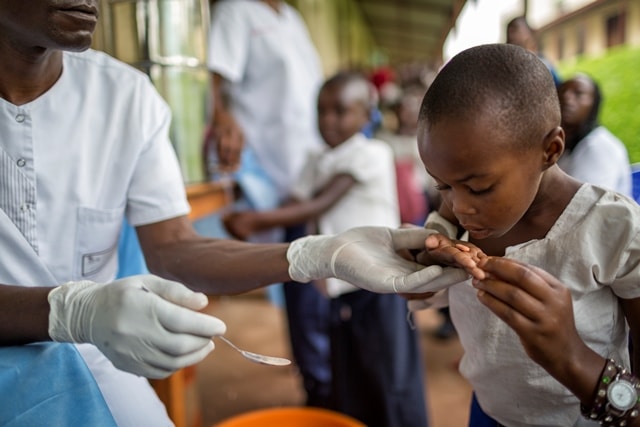In recognition of the first-ever World NTD Day, the END Fund is bringing together private and public sector stakeholders to imagine a world free from diseases caused by parasitic worms that have held back human progress for millennia.
Today, the END Fund announces its Audacious project – the Deworming Innovation Fund – in four strategic countries: Ethiopia, Kenya, Rwanda, and Zimbabwe.
In April 2019, The Audacious Project announced its support of the END Fund and seven other organizations. The Audacious Project is a collaborative funding initiative between TED and leading nonprofits that convenes funders and social entrepreneurs in order to scale solutions to the world’s most urgent challenges.By facilitating initial funding for the Deworming Innovation Fund, The Audacious Project has helped to catalyze additional commitments.
Neglected tropical diseases (NTDs) are a group of parasitic and bacterial infectious diseases affecting more than 1.7 billion of the world’s population, with about 40% of this burden concentrated in Africa. Two of the most common NTDs are intestinal worms and schistosomiasis, both of which are parasitic worm infections. Treatments for these diseases, commonly known as deworming, reduce stunted growth in children and improve food and vitamin absorption. Studies have shown that children who are dewormed are 25% more likely to attend school, and adults are able to increase their earnings by 20%. Moreover, deworming also improves labor productivity and long-term economic gains.
Slated to run through 2025, the Deworming Innovation Fund aims to accelerate progress towards tackling parasitic worm infections that affect more than 40 million children in Ethiopia, Rwanda, Zimbabwe, and Kenya. The END Fund will leverage drug donations from key pharmaceutical companies and coordinate with governments and partners to create robust delivery systems. Over the next five years, people at risk of intestinal worms and schistosomiasis in these four strategic countries will benefit from life-changing deworming treatment. Thus, ensuring that nobody is left behind and that at-risk demographics often overlooked in treatment campaigns, like women of reproductive age and children who are not yet in school, are reached.
“With initial funding raised through The Audacious Project, the END Fund garnered additional support for the Deworming Innovation Fund, which enables us to accelerate progress even faster than we had envisioned,” said CEO Ellen Agler. “This groundbreaking capital allows us to reduce the burden of intestinal worms and schistosomiasis in the four countries, and invest in innovative approaches to treatment, prevention, and sustainability,” said Agler.
Since 2012, the END Fund has supported Zimbabwe’s NTD control efforts in partnership with Higherlife Foundation, resulting in the delivery of more than 34 million treatments. Presently, the END Fund is partnering with the Ministry of Health and Child Care and Higherlife Foundation in co-creating a multi-sectoral approach to control and eliminate NTDs. The generous and unwavering level of support to end NTDs over the last six years led to a reduction in the overall combined prevalence rate of intestinal worms to 0.7% and schistosomiasis to 5.1%. Furthermore, it has also provided an opportunity to scale up proven approaches, trial new innovative approaches, and foster increased levels of community ownership.
Through the Deworming Innovation Fund, the quality of life for millions can be improved because of the significant improvement to mental, physical, and social health. The END Fund is proud to stand with other global change-makers on this World NTD Day to ensure that these diseases get the necessary attention and investment that they deserve.
Anchor funding for this initiative has been committed through a collaboration of Audacious Project partners including The ELMA Foundation, Delta Philanthropies, Sir Christopher Hohn (administered via the Children’s Investment Fund Foundation), Rosamund Zander and Hansjörg Wyss for the Wyss Medical Foundation, and Virgin Unite.
Distributed by African Media Agency (AMA) on behalf of the END Fund.
